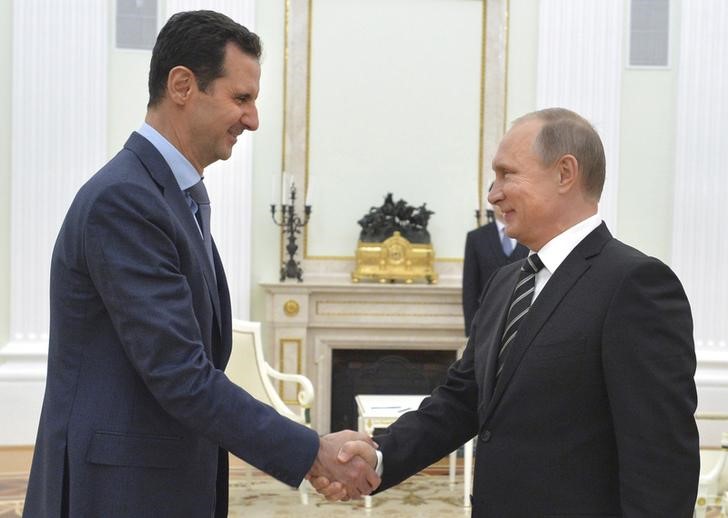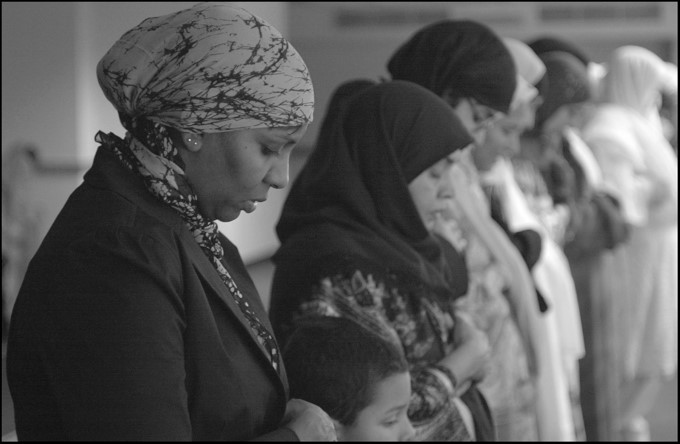Tsarnaev Friend Says Federal Agents Unfairly Detained Him
Friend of deceased bomb suspect alleges he was held after he refused to wear wire
By Patricia Wen
A Russian friend of Tamerlan Tsarnaev, the deceased suspect in the Boston Marathon bombing, is accusing federal agents of unfairly locking him up in connection with immigration problems after he refused their request that he wear a wire and secretly tape a conversation with a close friend who also knew Tsarnaev.
In a telephone interview from Plymouth County Jail, where he has been detained for the past three weeks, Konstantin Morozov, 28, said the agents also suggested that if he cooperated with their plan, his application for political asylum — which had been rejected in 2012 but was awaiting the last of two appeals — might be approved.
“You have an opportunity to stay and live in this country if you do this,†Morozov quoted one of the agents as saying.
Longtime immigration lawyers say it is highly unusual for federal agents to detain someone who has an appeal pending on an asylum case. In a court filing Friday, immigration officials say they now want the right to deport him.
Officials from the US attorney’s office, as well as the FBI and the US Immigration and Customs Enforcement, have declined to respond to the Globe’s questions about the circumstances around the detention of Morozov.
The allegations from Morozov come as the public is learning more about the FBI’s intense and widespread investigation into the April 15, 2013 bombing that goes beyond identifying Tamerlan Tsarnaev and his younger brother, Dzhokhar, as the suspected masterminds of the attack that killed three and injured more than 260. Dzhokhar, 20, is awaiting trial in the federal prison at Fort Devens and faces the possibility of the death penalty.
Agents have interrogated many friends of the brothers, looking for co-conspirators or additional evidence against the Tsarnaevs. Like the Tsarnaevs, the friends are Russian speakers from former Soviet republics who often socialized with each other in the Boston area, and they insist they knew nothing about the bombing plot. Still, some have faced charges of obstructing the investigation or have been confronted with immigration violations.
Federal authorities are not saying whether these actions against the friends are strategic moves, designed to scare them into revealing deeper incriminating knowledge they might have related to the bombing. However, some immigration lawyers see only selective punishment of vulnerable immigrants, which only discourages others in their communities from working cooperatively with law enforcement.
“It’s overreaching. It also damages the possibility of other people coming forward,†said Carlos Estrada, a longtime Boston immigration lawyer representing Morozov.
Three weeks ago, a Quincy cab driver from Kyrgyzstan who befriended Tamerlan was arrested for allegedly making false statements to the FBI, including failing to give the full facts around a dinner he shared with the Tsarnaev brothers on the evening of the bombing, and erasing some files from his computer. His attorney said, however, that his client, Khairullozhon Matanov, 23, initiated the first contact with police after the bombing and has tried overall to be cooperative.
Complaints of unfair treatment have also come from the former live-in girlfriend of Ibragim Todashev, a friend of Tamerlan’s who was shot and killed by an FBI agent during an interrogation about the bombing and an unsolved 2011 triple homicide in Waltham. Tatiana Gruzdeva said she was unfairly deported last fall after speaking to the news media about the shooting of Todashev. She said she had overstayed her visa, but last August was granted a stay of another year in this country. But Gruzdeva said that privilege was yanked after her media interviews, and federalauthorities sent her back to Russia.
Morozov’s immigration troubles began on the morning of May 30, the same day that the Quincy cab driver was arrested. Morozov, a native of Uzbekistan, said he was on his way to his job as a livery driver when he was approached outside his Allston home around 6 a.m. by two federal agents. He recalls one FBI agent introducing himself as Jay, and a Homeland Security agent saying he was Jeff. Morozov asked if they could talk after his work shift, but the agents insisted they speak right away.
Morozov said he felt the interview could wait because he already had been approached by the FBI and had spoken to them about Tamerlan Tsarnaev. He said he spoke to the FBI once during a face-to-face interview shortly after the bombings, and in two subsequent telephone interviews. Morozov said he told the agents he knew him socially from 2006 to 2009, and had only one brief phone conversation with him since then, in 2011.
Morozov said he met Tamerlan Tsarnaev through other Russian-speaking friends living in the Boston area. They socialized a few times a week for several years until 2009, and he said that Tsarnaev was then a fun-loving, pot-smoking aspiring boxer who was not at all political or religious.
But according to Morozov, the FBI had a new agenda when the agent approached him a few weeks ago. In a conversation that took place in Morozov’s living room on the morning of May 30, which lasted about 30 or 40 minutes, Morozov said, he answered the agents’ questions about, among other things, his income and bank account.
He said the agents then asked if he would wear a wire and arrange to speak to a Chechen friend of his — a man who apparently had received a phone call from Tamerlan Tsarnaev a day or so before the bombings, but never picked up the call, Morozov said. The Chechen friend, who has been interrogated before by the FBI, allegedly has insisted he knew nothing about the bombing plot. When asked about wearing the wire, Morozov said he told the agents, “I don’t want to do it.â€
Sarah Wunsch, an attorney with the American Civil Liberties Union of Massachusetts who is advising the Chechen man, would not discuss why the FBI is interested in him. She asked that his name not be publicized because she said he is innocent of any wrongdoing, and publicity about the FBI targeting him would cause him to lose his job.
Wunsch insisted that this Chechen man, who is in his late 20s, is a law-abiding citizen of the United States, and obtained political asylum a few years ago. She said he has been fully cooperative with federal agents, and she believes that this man — like some other Tsarnaev friends who have been questioned — is the victim of overzealous investigators.
Wunsch said the repeated interrogations by the FBI within the local Chechen and Muslim communities have caused many to live in fear of unfair persecution.
“These are FBI agents turning up on their doorsteps multiple times,†she said.
When Morozov refused to cooperate against his Chechen friend, he said he was told by the agents that he was going to be detained on immigration issues. He said this is the first time he has been detained or arrested since coming to the United States in May 2006 on a student visa.
Morozov’s bid for political asylum — which has so far been unsuccessful — also has a Chechen connection. After arriving here at the age of 20 and attending the ASC English School in Boston, he applied for asylum based on his allegation that, while a teenager in Russia, he had many friends who were ethnic Chechens, and due to the historical animosity between Russians and Chechens, he suffered beatings and persecutions.
But his asylum case was rejected in 2012, and an immigration court appeals board also rejected his case in March. The board found that Morozov did not show enough basis of past or future persecution in Russia, despite his alleged fears of what might happen to him “on account of his imputed political opinion as a Chechen sympathizer,†according to records.
Morozov has one final appeal left before a federal judge, and he had been assured, through a court order, that he would not be deported until that ruling came down. But, on Friday, immigration authorities asked the courts for the right to deport him immediately.
His lawyer, Estrada, who is fighting Morozov’s deportation, said his client’s treatment is unusual. He and other immigration lawyers said that, while the courts cannot promise that someone will not be detained while awaiting an appeal, it happens rarely unless the individual is considered a public threat. They say the government does not typically want to spend the money to keep someone in a lockup if they are living safely in the United States.
“It is unusual to detain someone if his petition is still pending,†said Boston immigration lawyer, Kerry Doyle.
16-27















2014
796 views
views
0
comments